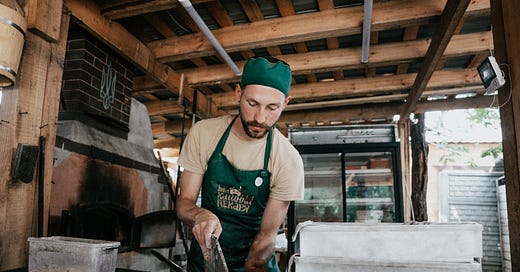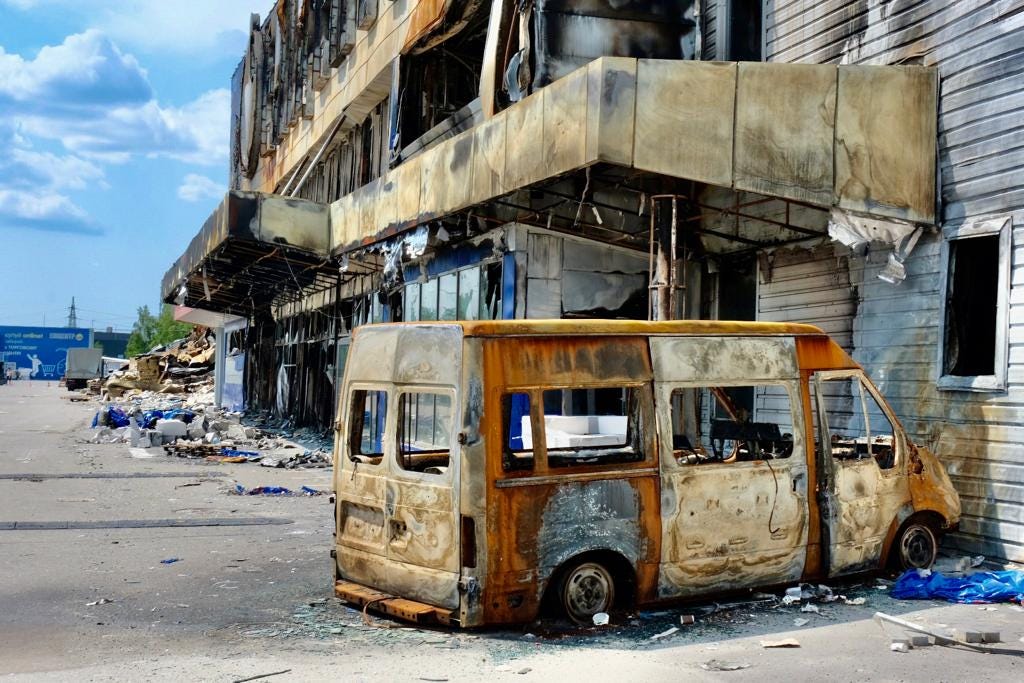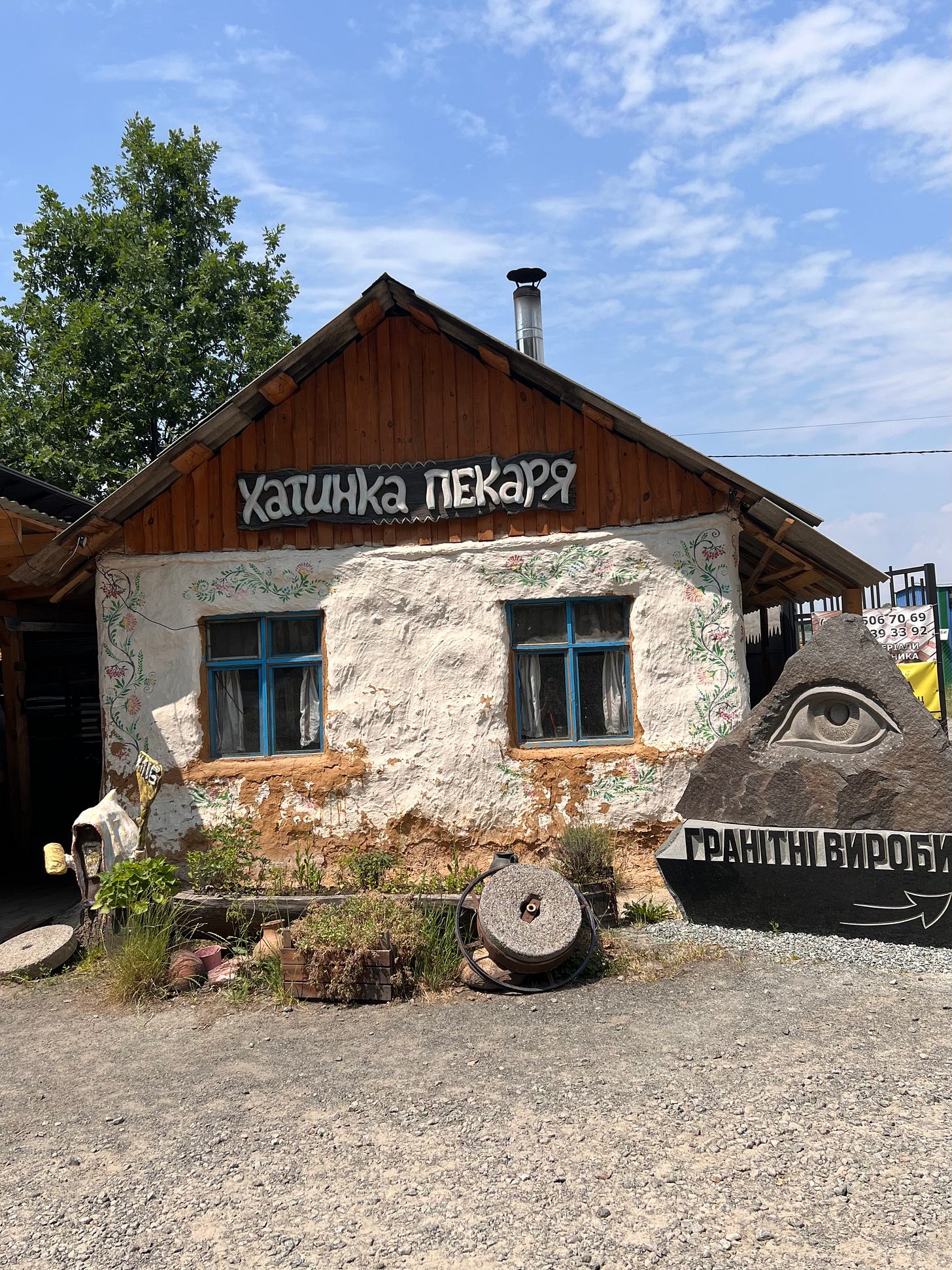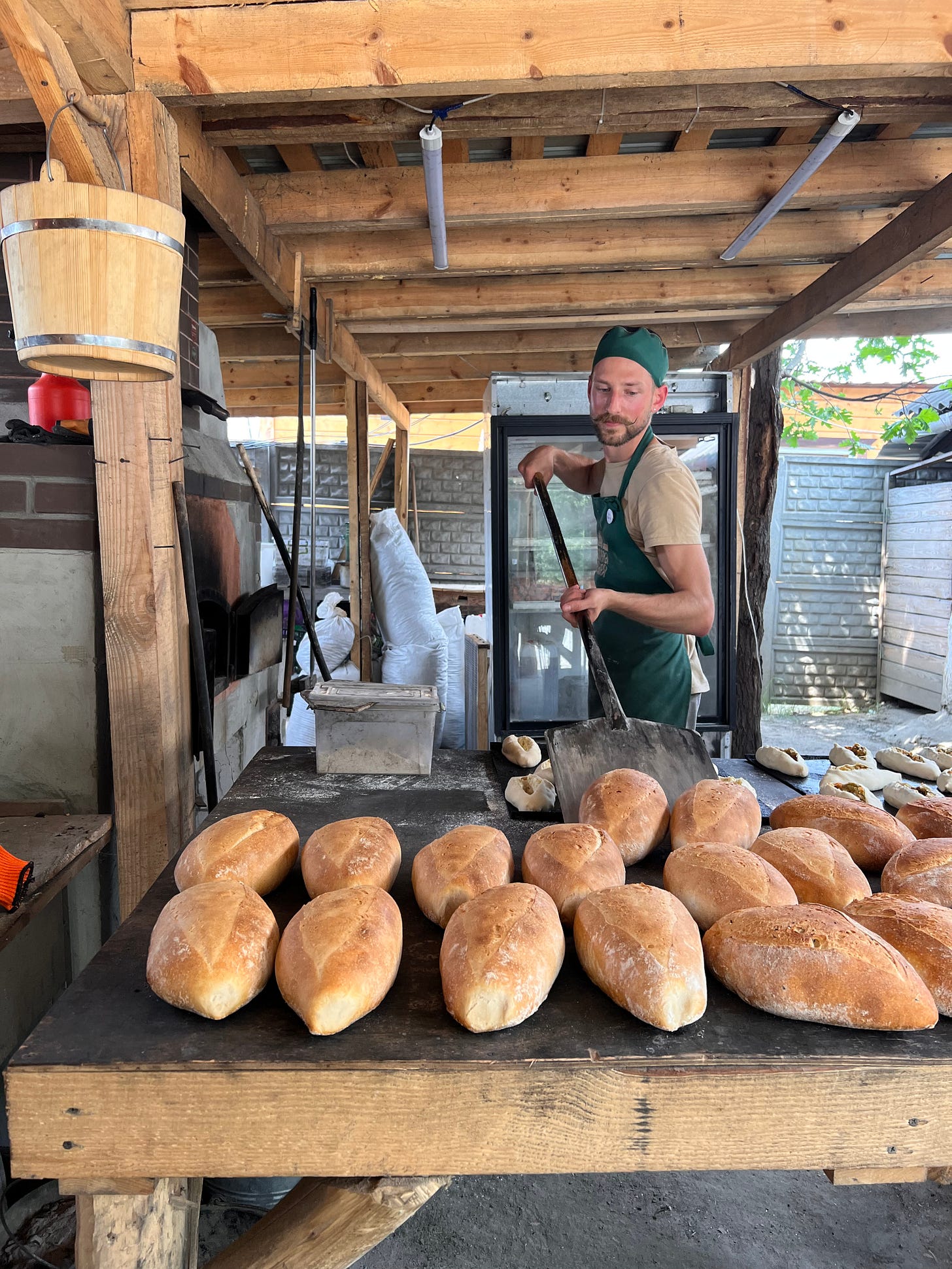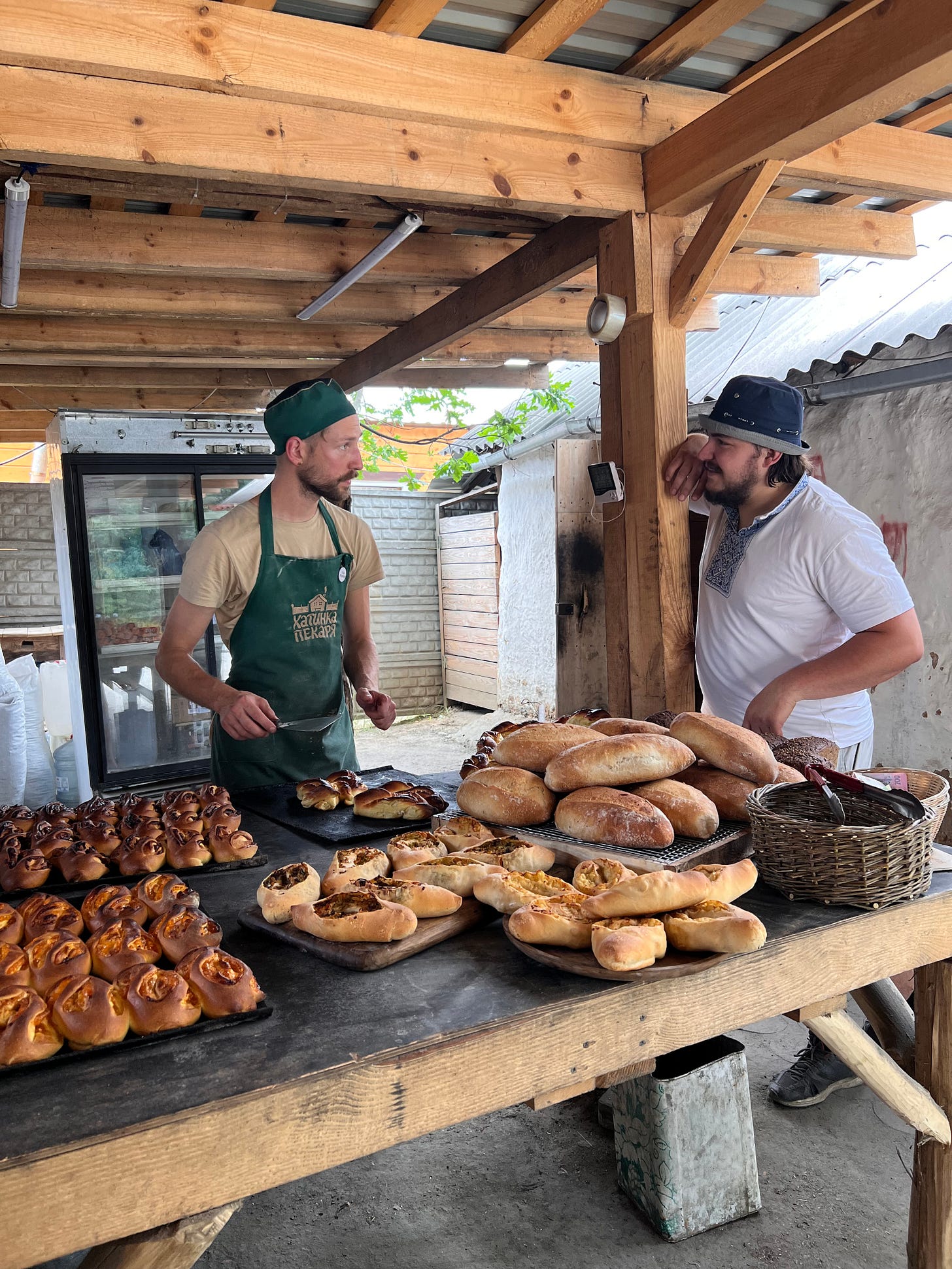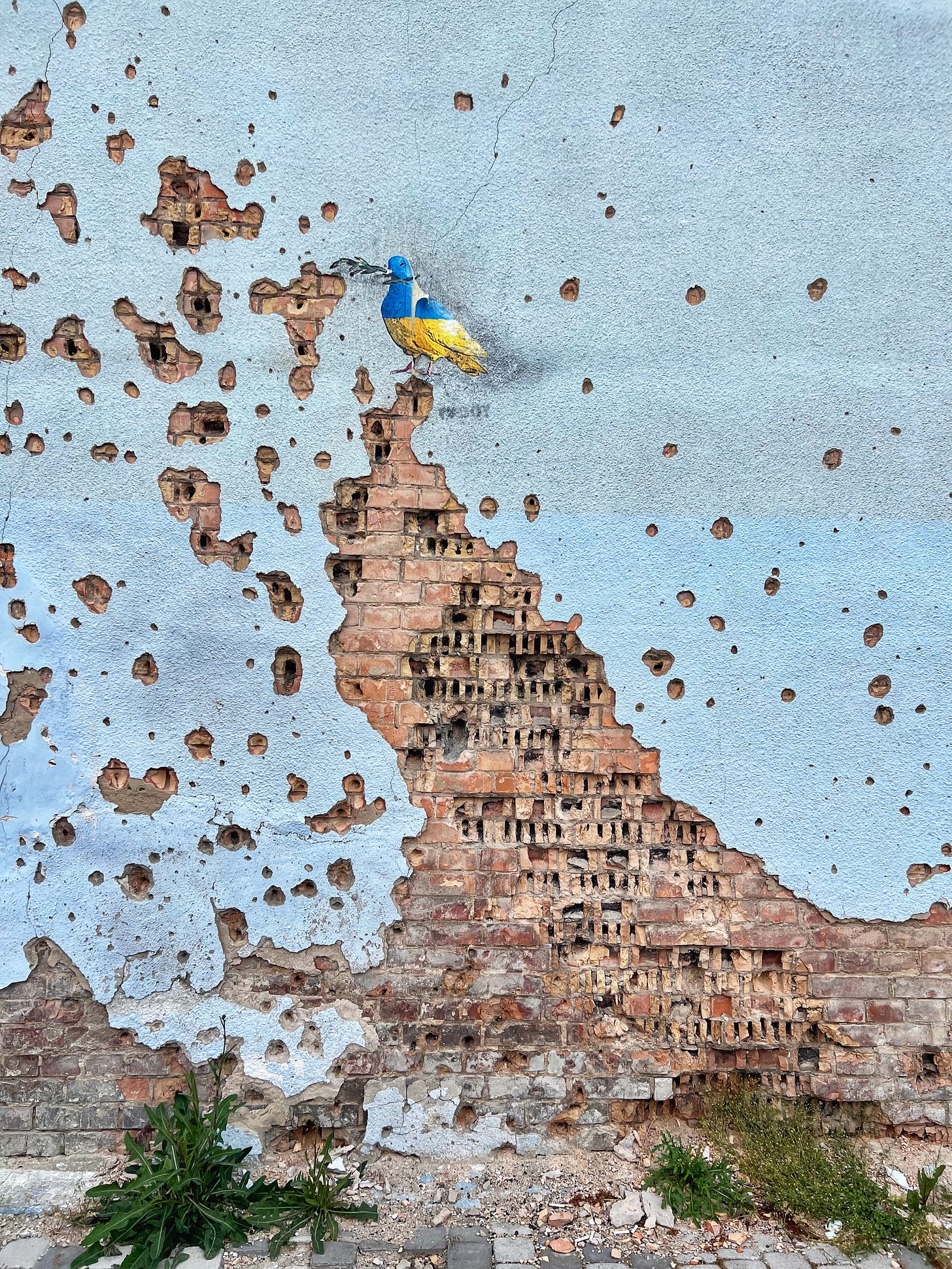Resistance and hope
We visited the Khatynka Pekarya craft bakery in Bucha - which managed to provide local people with free bread during the dark days of Russian occupation - and is still baking today
It was once a comfortable, leafy suburb on the outskirts of Kyiv: and then came the Russian army - and Bucha's name became part of that ugly lexicon of war, the scene of crimes and atrocities too horrific to bear. When I first visited in the late spring of 2022, the road through Bucha was still lined with badly damaged buildings, burned out shops, and a huge pile of cars riddled with bullets and shrapnel, cars which had been full of families desperately trying to escape.
Bucha, July 2022
A year later, and there has been a lot of rebuilding work: the visual scars at least, are slowly fading. We have come to visit a bakery, down a turning on the edge of town - the Khatynka Pekarya, or Baker's Hut. Yaroslav Burkivsky built it himself three years ago out of clay and straw, after the restaurant where he worked as a chef closed down during the pandemic. He began making sourdough bread at home, then started giving it to his friends, then built a bakery where he could contine making everything by hand. Fellow baker Yuri Boyko came to work here after leaving an office job in IT: war makes people more grateful for the most basic things in life, he says.
Built by hand
When the Russians arrived in Bucha, Yaroslav says the bakery was only closed for a single day: they wanted to keep feeding people even though it was almost impossible to get hold of ingredients like flour and oil. "At first we made twenty loaves, the next day we doubled it, and by the third day we were at full capacity", he says. They managed to give away around 150 loaves a day to local people at a time when food was incredibly scarce. Anyone who could afford it could leave a voluntary donation - but their mission was to feed people for free.
Yuri taking loaves from the oven
After liberation they got help to buy a large dough mixer which was delivered by volunteers from Poland - and built a second wood fired oven outside which has helped them to increase capacity. They are now able to sell their bread and buns outside the bakery at lunchtime, and on the day we visited they produced a wonderful range of rye and white sourdough loaves, some with seeds and spices, soft, fluffy buns stuffed with cabbage and onion and sweet ones braided with curd cheese or apple jam. Thanks to help from donors, including Bake for Ukraine, they're able to keep making free bread for the local National Guard and Territorial Defence force as well.
It is extremely challenging to run a business during war. "There is no stability nowadays", says Yaroslav "so it's really hard to plan. Many people left the area - not everyone, but it's a very nervous situation. It's difficult to make any plans for the future, but the main thing is to maintain some kind of balance, to keep working and not to lose faith."
Yuri and Yaroslav
We left a few hundred hyrvnias in the donation basket and carried away a bag of warm buns for the journey - but before we headed back to Kyiv we stopped off in Irpin, at the Central House of Culture which was badly damaged by Russian shelling last March. The building itself, which was opened in 1954 to host concerts, workshops and exhibitions is without a roof, the once grand interior reduced to piles of twisted metal and dust. The walls are pockmarked by shrapnel - but even this is still a place of creativity and art. The Italian graffiti artist TvBoy painted murals there as a tribute to the victims of war: there are sunflowers and cranes and a dove with an olive branch - signs of hope, blossoming amid the ruins.

